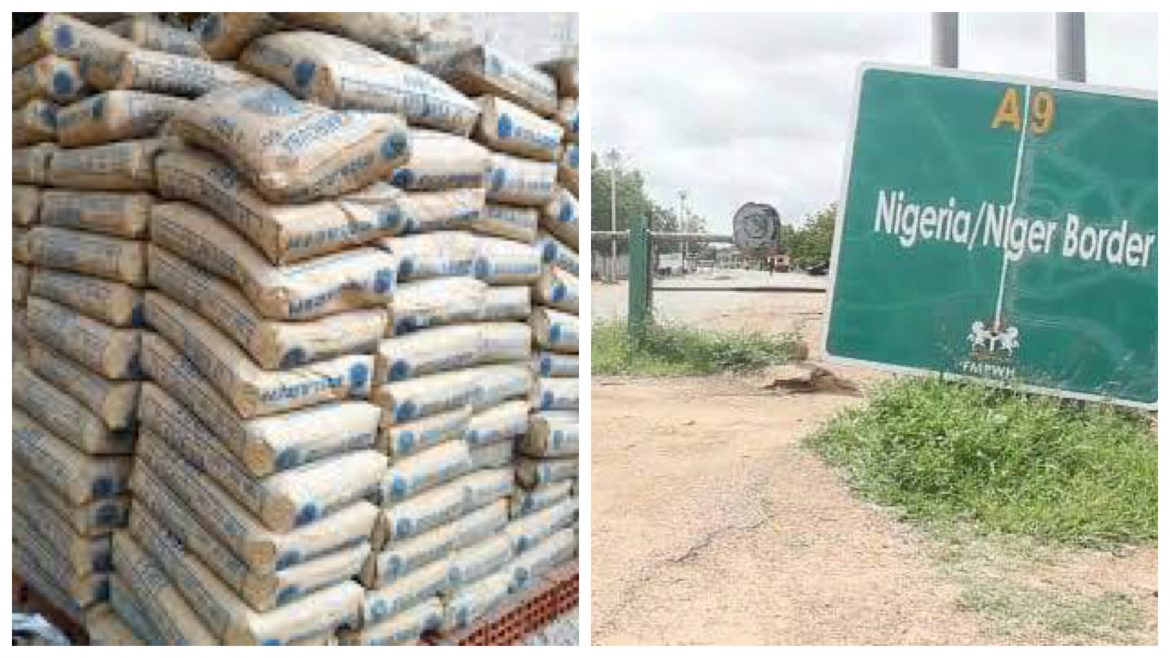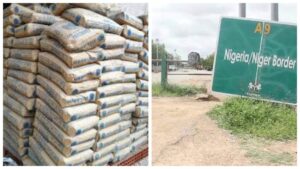FG declares it intends to open borders to allow cheaper cement imports
The government is concerned that rising costs for basic building supplies would drive up home prices.
If cement producers are unable to lower the price of their products, the federal government threatens to open the borders to cement imports.
During a meeting with manufacturers of cement and building materials on Tuesday in Abuja, the Minister of Housing and Urban Development, Ahmed Dangiwa, issued the threat.
The conference was called to discuss the sharp rise in cement prices across the country, according to the News Agency of Nigeria (NAN).
The minister voiced concerns about the nation’s ongoing, concerning rise in cement and other building material prices over the last few months.
“It is obvious that the delivery of housing is in jeopardy. The cost of homes will rise in response to price increases for necessary building supplies. Numerous other nations, some even worse than our own, are dealing with issues similar to the ones we are. We are not the only nation confronting these difficulties.
“But, as patriotic citizens, we have to rally round the country when there is crisis, to ensure that we do our best to save the situation,” he stated.
“To be honest, we need to take a seat and examine this closely in order to determine how you should reconsider it,” the minister continued. To enable you to make more and sell it for less, the government prohibited importing cement.
if not the government can open the borders for massive importation of cement, the price will plunge, but you will have no business to do.”
Dangiwa stated that the exorbitant pricing was not justified by the justifications provided by cement makers for the price rise, which included the high cost of producing equipment and gas.
He voiced his dissatisfaction with the Cement Manufacturer Association of Nigeria’s (CEMAN) assertion that it “does not interfere with the pricing of cement.” He said that when things weren’t going well, the association shouldn’t have folded its arms.
“You cannot call someone to place an order if they are selling bags for N7,000 and someone else for N3,500 each
“The association has a responsibility to keep track of price control, else the association has no need to exist,” he stated.
Prior to this, Salako James, Executive Secretary of CEMAN, stated that every law-abiding Nigerian should embrace President Bola Tinubu’s excellent housing program. To address the issue of cement price, he did, however, point out a few areas of concern and urged the government to investigate.
Salako called attention to the difficulties in supplying gas to large consumers, such as the cement sector, and encouraged the government to establish a period during which naira will be used to purchase gas instead of dollars.
In addition, he voiced his dissatisfaction with the distribution system, highlighting the stark discrepancy between the manufacturers’ pricing and the going rate. For this reason, he demanded government action to help stabilize the situation and restore economic stability.
According to NAN, the minister gave the order to form a committee to assess the circumstances and produce workable ideas that would help the average Nigerian after the meeting.
Along with other industry players, NAN also reports that the three largest cement producers, Dangote Plc, BUA Plc, and Lafarge Plc, were represented.





